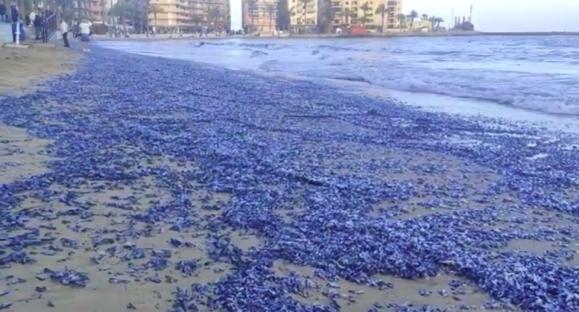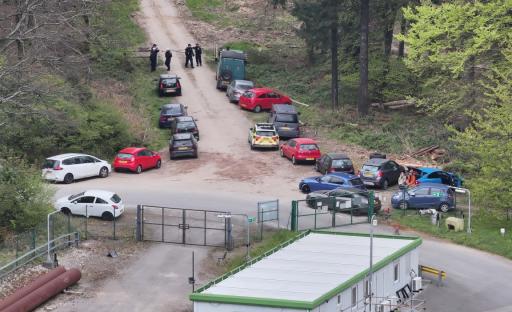Rich Coleman, former B.C. Liberal gaming minister, testified that he didn't turn a blind eye to repeated warnings of suspected drug-money laundering in B.C. casinos or influence the RCMP to steer clear of casinos, while they ballooned into a $1.6 billion annual revenue-machine for the province.
Coleman, a former RCMP officer who was first elected in 1996 and served as gaming minister for successive B.C. Liberal premiers was examined Wednesday in B.C.'s inquiry into money laundering, which is mandated to determine whether inaction on the part of police and government enabled dirty money to take root in the province's casino industry.
The inquiry has previously heard testimony from a number of witnesses that said Coleman was alerted many times by his subordinates, police officers and even fellow B.C. Liberal MLAs, that money laundering was growing in B.C. Lottery Corp. casinos as organized crime took control of these venues.
Read more: B.C. disbanded RCMP unit after report warned possible crime figure bought stake in casino
But instead of seeking police investigations inside casinos, according to the testimony of former RCMP officer Fred Pinnock, Coleman disbanded the province's anti-illegal gaming unit in 2009. The inquiry previously heard from Pinnock, the anti-illegal gaming unit's former commander, that former B.C. Liberal solicitor-general Kash Heed blamed Coleman for turning a blind eye and it was “all about the money.”
According to Pinnock, Heed had told him in 2009 that Coleman influenced B.C. RCMP leaders to avoid probing casino crime. And Pinnock recorded Heed making similar comments in 2018, the inquiry heard previously.
“It’s just — they’re the most unethical group of people you can imagine,” Heed said of RCMP leaders in B.C., in the recording. “And then Coleman — Coleman was all part of it. It’s their network that caused this tsunami to take place in the casinos.”
Read more: Former BC Liberal minister and RCMP caused ‘tsunami' of casino money laundering, inquiry hears
Heed is scheduled to testify Friday and has taken issue with some of Pinnock's testimony.
Pinnock also testified that in 2009 he asked his then-girlfriend, former B.C. Liberal MLA Naomi Yamamoto, to request a meeting between Coleman and Pinnock, on the money laundering concerns. But Coleman turned Yamamoto away at a B.C. Liberal caucus meeting with a “brutal” rebuke, Pinnock testified.
On Wednesday, Cullen Commission lawyer Brock Martland asked Coleman to respond to the allegations.
Coleman said “it's just ridiculous” that he turned a blind eye to money laundering in order to boost provincial revenue. And he denied manipulating RCMP leaders on the casino crime file.
“The need for revenue was never the driver of anything we did on this file,” Coleman said. He said he vaguely remembered meeting with Yamamoto to discuss a meeting with Pinnock, but denied yelling at her.
Coleman acknowledged that he was responsible for disbanding the B.C. anti-illegal gaming unit, but he said he believed the unit was ineffective, and he expected other anti-gang police units in B.C. to target organized crime.Read more: Former minister tells inquiry money laundering on B.C. radar, but so were guns, gangs
In a lengthy examination, Martland took Coleman through his history as gaming minister for different B.C. Liberal governments. Coleman said his party won the 2001 provincial election on the promise not to expand casinos, but ultimately decided to “modernize” gaming and allow mega-casinos such as Great Canadian Gaming's River Rock Casino, which opened in Richmond, in 2004. Coleman said he was aware of concerns about loan sharking in B.C. Lottery Corp. casinos in 2004 but questions about whether these loan sharks were facilitating a surge in large cash transactions were never brought to his attention. However, Martland told Coleman, in 2004 a CBC report quoted a Great Canadian Gaming employee who claimed management allowed some loan sharks to operate because they brought in so much money. The employee claimed that B.C.'s government was aware of the allegations, but didn't want an investigation to become public, because B.C.'s casino industry was expanding. Coleman told Martland he recalled the report, but he disagreed with the story. “That comment frankly was not reflective of the view of the government,” Coleman said. “At no time, to my knowledge, did anyone say ‘Don't talk about these things.'” Coleman also said he didn't recall attending a meeting around 2007 when a senior official with B.C. Gaming Policy Enforcement Branch allegedly said he was “losing sleep” thinking about the amount of dirty money pouring into B.C. casinos. The inquiry has heard that from about 2008 the branch recognized transnational gangs linked to China appeared to be increasing the amount of suspected drug money coming into facilities like River Rock through loan sharks and high-rollers. The loan sharks delivered bags of cash stuffed with hundreds of thousands to the high-rollers, who used $20 bills wrapped in elastic bands and bundled in $10,000 stacks to buy chips. And Coleman was warned in detail in 2010, of these concerns. Coleman acknowledged that Larry Vander Graaf, the former executive director of the B.C. Gaming Policy Enforcement Branch, told him at a 2010 meeting, that Vander Graaf feared drug-traffickers were using government casinos to launder the massive volumes of $20s they had warehoused from Vancouver drug deals.“He sat across from me, and Mr. Coleman opened the conversation, and said, ‘What about this money laundering?'”; Vander Graaf recalled of the meeting, the inquiry heard previously. “And I said, ‘They are bringing it in, in $10,000 bundles.’
According to Vander Graaf, Coleman’s deputy at the meeting, Lori Wannamaker, said, “Rich, we have to do something about this.”;
At the meeting, Vander Graaf said the branch wanted B.C. Lottery Corporation to put a daily cap on the amount of $20 bills any single casino could accept, in order to staunch the flood of suspected drug money coming in. But Coleman's government didn't act, Vander Graaf previously testified. And by 2014 Vander Graaf's staff estimated the suspected drug-money laundering had reached about $200-million per year in B.C. Lottery Corp. venues.
Regarding the 2010 meeting, Coleman told Martland he didn't recall Wannamaker saying “we have to do something about this.” And according to Coleman, he also had suspicions about the way cash was being “packaged” in B.C. casinos. But Vander Graaf and others informed him it couldn't be proven as dirty money, unless the police made the case.
And that's why, Coleman told Martland, that his government didn't believe B.C. casinos could reject bags of cash being delivered to high-rollers by loan sharks.
Read more: B.C. casino ‘knowingly accepted’ millions from banned loan shark, audit alleges
Next, Martland read an email received by Coleman and a number of B.C. MLAs in 2010, that was allegedly sent by employees inside Vancouver's Edgewater Casino. The email, according to Martland, said the employees believed staff that worked in Edgewater's high-roller room were working in conjunction with loan sharks, and that loan sharking was rampant inside the casino, but that Edgewater's casino management and B.C.'s government were sweeping these issues under the rug.
“I don't have a recollection of this particular email,” Coleman told Martland, adding that it was not his responsibility as gaming minister to get involved in investigations of casino crime allegations.
Martland also read from media reports in 2010 and 2011, in which RCMP officers complained that casinos were failing to report massive cash transactions as suspicious, and that the RCMP's hands were tied in B.C., and they could not prosecute or even investigate casino money laundering.
Coleman told Martland that he did recall these media reports.
“I think it was becoming a more reported story, at that time,” Coleman said, while adding that he questioned the media “narrative” that money laundering was occurring on his watch. Coleman said he believed that it was extremely difficult to exchange cash for cheques inside B.C. casinos, and that was how money laundering generally occurs in casinos, in his understanding.
However, the inquiry has heard the B.C. Gaming Enforcement Branch had a different understanding from Coleman, who was their boss. The branch warned that loan sharks laundered drug money for gangs by delivering bags of cash to casinos like a “drive-thru” and that high-rollers used the cash to buy chips, and whether the gamblers won or lost, they repaid the cash with cheques or bank transfers, often in China.
This model of money laundering has become known as the “Vancouver Model” of crime.
Martland closed his examination of Coleman by asking if Coleman had been in a conflict of interest, by favouring revenue-generation in B.C. casinos, which reached about $1.6 billion on Coleman's watch, rather than listening to the regulator or police that wanted to crack-down on massive cash transactions.
Coleman said he was never in conflict as gaming minister.
The inquiry continues.



